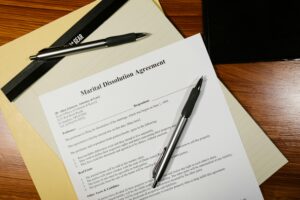 By: Gregg R. Woodnick, Markus Risigner & Ian D. Haney
By: Gregg R. Woodnick, Markus Risigner & Ian D. Haney
Imagine you are a juror in a case involving infant abuse. The treating physician testifies that, when the infant arrived in the hospital, she was covered with large bruises. The doctor then states, “The family was awkward, and the father was visibly irritated.” The family also offered no explanation for the infant’s condition. After accurately informing you that accidental bruising is exceedingly rare in infants, the doctor concludes the infant’s bruising is consistent with trauma caused by a severe beating.[1] He adds: “I see this sort of thing every day, and it’s heartbreaking.”
Next, the family’s expert, an out-of-state doctor from New York, takes the stand. He quickly admits to being paid over $5,000 for his testimony. He attests that the treating physician was “clearly” mistaken. He testifies that, although the bruising seems indicative of child abuse, after conducting a blood test, he concluded that the bruising was caused by something called “von Willebrand disease.” The New York expert arrogantly brushes off cross-examination questions and the Judge appears frustrated by numerous objections made during the exchange.
Which testimony do you find more credible? The local physician who treated and cared for infant’s disturbing bruises or the expert hired to testify?
Given these facts, it would not be surprising if you believe the treating doctor is more persuasive. The treating physician has a more intimate knowledge of the facts, and the doctor’s experience and education could easily qualify him as an expert.[2] However, von Willebrand disease is an anomalous congenital bleeding disorder nearly indistinguishable from child abuse in a clinical setting.[3] Plus, a blood test confirmed the infant has it. But, do not be too hard on yourself: favoring the treating physician is pervasive problem in our courtrooms. However, as you can see, it is fertile ground for incorrect decisions to take root.
To help the trier of fact determine what happened, physicians are asked to testify either as a lay witness or an expert witness.[4] In cases involving child abuse usually both are necessary.
The treating/diagnosing physician is hauled into court to attest to the relevant facts they observed and are supposed to do so without providing scientific or technical knowledge.[5] I.e., a treating doctor is considered a lay witness limited by R. 701.[6] Additionally, other physicians are hauled into court under R. 702 to provide their expert opinion helping the judge and jury understand the science behind what caused the injury.[7] However, as seen in our hypothetical, sometimes the treating doctor’s testimony improperly wanders into the expert arena.[8] In other words, a diagnosing physician testifying as a lay witness usually offers their expert opinion without being vetted by the court to ensure their opinion is credible. Furthermore, these diagnosing doctors are naturally and practically dissuaded from objectivity by their desire to help their patient, making their unintentional encroachment into expert territory a serious concern.
At first blush, this testimonial transition may not be alarming because a doctor is a doctor. Surely, if a doctor can qualify, they should be considered an expert.[9] Plus, the diagnosing doctor probably reviewed all the attendant medical records and, given their more intimate knowledge of the underlying facts, are in a better position to attest to what happened. However, from a legal perspective, the distinction between a fact witness and an expert is critical.[10] As the 9th Circuit held, “care must be taken to assure that a proffered witness truly qualifies as an expert” because their statements “carry special weight with the jury.”[11] Stated differently, experts are so persuasive that courts are obligated to make sure the opinions they provide are reliable (i.e., credible) before allowing them to testify.[12]
In fact, juries and judges are even more partial toward treating physicians due to the status and integrity of their profession. This preference has been dubbed the “halo effect.” For example, a Phoenix Children’s Hospital emergency room physician saves children’s lives and thus deserves public accolade and respect. However, this reverence/halo acts as a shield, making it difficult to question their opinion without offending the jurors. Ironically, most of us would balk at the notion of limiting ourselves to only one opinion when confronted with a serious medical diagnosis, but jurors enamored by the halo effect often reject alternative explanations as a matter of course. This favoritism towards diagnosing doctors can lead to unjust results.
Perhaps even more concerning than the blurred line between lay and expert testimony is the effect a physician’s initial impressions—and his subsequent desire to prove them correct—can have on the treatment of the child and the investigation itself. Numerous scientific studies demonstrate that diagnosing doctors are programmed to subsequently confirm their initial diagnosis, even when presented with proof to the contrary.[13] Psychiatrists call this phenomenon confirmation bias.[14] Technically, confirmation bias is defined as the “seeking or interpreting of evidence in ways that are partial to existing beliefs, expectations, or a hypothesis in hand.”[15] To quote a German study from 2011:
Every physician who makes decisions about diagnosis or treatment runs the risk of a potentially fatal decision error, by sticking to a wrong preliminary decision and not re-evaluating it appropriately. This error can occur because physicians, like all other individuals, have the tendency to confirm their preconceived ideas and neglect contradictory or unsupportive information.[16]
Evidently, confirmation bias is not limited to doctors, but is hardwired in all humans.[17] Nonetheless, science tells us that diagnosing physicians tend to favor their initial evaluation and ignore contrary facts.
Furthermore, a diagnosing doctor’s confirmation bias is exacerbated by practical forces. For instance, a doctor would not admit in open court that their diagnosis was incorrect or even flawed for fear of opening themselves up to civil liability. A treating physician may be morally concerned that if they concede error, a guilty person may go unpunished, not to mention the pressure these doctors feel from prosecuting attorneys expecting testimony supportive of their theory of the case. Courts have recognized bias as a bugbear to reliable testimony since antiquity.[18]
Consequently, the defending party needs to be prepared to tease out these innate and practical biases. Almost always, this requires hiring a qualified independent physician as an expert—often easier said than done—to review the case and testify both credibly and persuasively.
Retaining a qualified expert is expensive. Specifically, the average hourly fee for in court testimony for non-medical experts is $335.49, whereas the average hourly fee for medical experts is $750.80.[19] Obviously, these rates are beyond the means of most clients. Admittedly, clients of meager means can receive funding to retain an expert from their local public defense services; however, these funds are often insufficient. Regardless, even if your client can afford to hire an outside expert, it is difficult to find an expert physician willing to openly testify that the diagnosing doctor erred.
Local medical communities are also both small and self-preserving. Out-of-state doctors are often retained as experts out of necessity because local doctors are either reluctant or unwilling to go on the record against one of their own. This insulation not only increases the cost to rebut a treating physician’s testimony by forcing the opposing party to reach beyond their state to find a doctor, but it also leads to the presumption that this expert is merely a “hired gun” cashing in.
In other words, a party questioning the credibility of the treating physician by bringing in a costly independent expert must also overcome the likelihood that the jury will facially discount their expert’s opinion. Additionally, because treating physicians are often subpoenaed to testify, they are paid significantly less than retained experts (or not at all).
With all of this in mind, treating physicians should not be precluded from testifying because their knowledge may be useful to everyone involved in the case. The treating physician’s factual testimony is unique and often critical. However, whenever they take the stand and opine that that a child was abused, the bell cannot be unrung. Juries and judges favor treating physicians, especially when compared to a well-paid expert. Defendants face an uphill battle with few remedies. They must be prepared to diagnose and troubleshoot improper expert opinions and confirmation bias well in advance of trial.
[1] Cindy W. Christian & Lisa J States, Medical Mimics of Child Abuse, 208 Am. J. of Roentgenology 982 (2017) (“Accidental bruising is nearly universal in active ambulatory children but notably rare in prerambulatory infants.”).
[2] Federal Rules of Evidence (“FRE”) R. 702 (allowing experts to qualify based on “knowledge, skill, experience, training or education”).
[3] Christian & States, supra note 1, (“[I]t is not always possible to distinguish child abuse from congenital bleeding disorders solely on clinical grounds. Congenital disorders of coagulation most commonly confused with abuse include hemophilia and von Willebrand disease.”).
[4] Compare FRE R. 701 to FRE R. 702
[5] FRE R. 701 (requiring that fact/lay witness testimony to be rationally related to their perception, helpful to the jury and not based on scientific or technical knowledge).
[6] Id.
[7] FRE R. 702(a) (requiring expert testimony to beyond the ken of jurors to help them understand the evidence or determine a fact at issue).
[8] Id.
[9] FRE R. 702, supra note 2.
[10] Jinro Am. Inc. v. Secure Investments, Inc., 266 F.3d 993, 1004 (9th Cir.), opinion amended on denial of reh’g, 272 F.3d 1289 (9th Cir. 2001) (“An expert witness—unlike other witnesses—is permitted wide latitude to offer opinions, including those that are not based on firsthand knowledge or observation, so long as the expert’s opinion has a reliable basis in the knowledge and experience of his discipline) (internal quotations omitted).
[11] Id.
[12] Daubert v. Merrell Dow Pharm., Inc., 509 U.S. 579, 589 (1993) (“[U]nder the Rules [of Evidence] the trial judge must ensure that any and all scientific testimony or evidence admitted is not only relevant, but reliable.”); see also FRE R. 403 (allowing Courts to exclude evidence if its probative value is substantially outweighed by a danger of “misleading the jury”).
[13] Neal V. Dawson, Physician Judgments of Uncertainty, Decision Making In Health Care: Theory, Psychology, and Applications, 211-252 (2000) (discussing the prevalence of confirmation bias in physicians); Raymond S. Nickerson, Confirmation Bias: A Ubiquitous Phenomenon in Many Guises, Review of General Psychology, 175-220 (1998); Rosemarie Mendal, Confirmation Bias: Why Psychiatrist Stick to Wrong Preliminary Diagnoses, Psychological Medicine, 2651-2659 (2011) (discussing confirmation bias in psychiatrists).
[14] Id.
[15] Nickerson, supra note 11, at 175.
[16] Mendel, supra note 11, at 2651.
[17] Charles Mackay, Extraordinary Popular Delusions and the Madness of Crowds, 522 (1851) (“When men wish to construct or support a theory, how they torture facts into their service!”).
[18] U.S. v. Clark, 96 U.S. 37, 41 (1877) (noting that at common law, parties and persons having an interest in the result of a suit were excluded from becoming witnesses); Olden v. Kentucky, 488 U.S. 227, 231 (1988) (holding that even Rape Shield laws do not extinguish a party’s right to impeach a witness based on “prototypical forms of bias”); see also FRE R. 102 (setting forth that the purpose of the rules of evidence serves “the end of ascertaining the truth and securing a just determination”).
[19] These figures are based on Expert Witness Fees, SEAK Inc. (2004), https://seak.com/expert-witness-fee-study/, a 2004 study concluding the average hourly fee for in court testimony for non-medical experts is $248 and the average hourly fee for all medical experts is $555, which was adjusted for inflation according to Bureau of Labor Statistics consumer price index listing the inflation rate between 2004 and 2019 at 35.28%.


